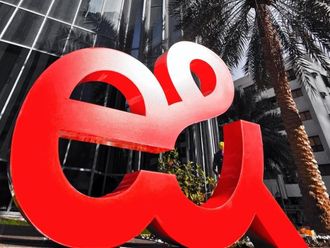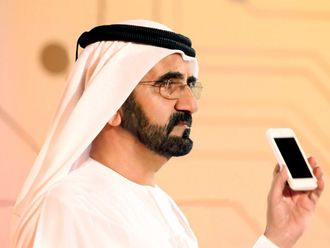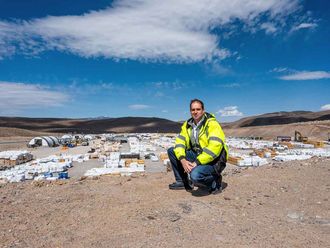Dubai
Smart transportation is one of the top three investment areas (along with energy and public safety) for the development of Smart Cities. And on closer inspection, it is clear to see why. Global research and advisory services firm International Data Corporation (IDC) rates the importance of smart transportation across three key areas of urban transformation.
Firstly, economic development relies on transportation infrastructure – to transport goods, to get citizens to their jobs, and to bring tourists and visitors to shops and attractions. According to the GPS manufacturer TomTom, the average driver loses eight working days a year due to congestion, and in many large metropolitan areas this number is higher. Beyond reducing traffic congestion, smart transportation is an essential part of coping with disasters, enabling citizens to navigate out of dangerous areas in response to a crisis, and managing events that swell urban populations for short periods of time.
Secondly, in terms of enabling the sustainability targets promised by local government officials, smart transportation is a necessity for reducing emissions caused by idling in traffic or while searching for parking, and by the over-use of gasoline-based modes of transportation. This is a particular area of concern as Ford Motor Company estimates that the number of automobiles on the road in the world will increase from approximately one billion today to four billion in 2050.
Thirdly, IDC views smart transportation as having a key role to play in facilitating greater levels of satisfaction among citizens and tourists alike. Every city has traffic congestion, and it is a major complaint of citizens and city visitors (along with delays in public transportation). Those leaders that can improve quality of life by reducing commute times and making it easier to get to jobs, schools, shops, and cultural attractions will have a competitive lead over neighboring municipalities.
The new urban challenges faced by cities in the GCC provide a strong rationale for investment in various smart transportation solutions. Within the GCC, four cities rank among the 250 cities worldwide expected to see the fastest growth between now and 2020 – Riyadh (43rd), Jeddah (51st), Mecca (85th), and Kuwait City (246th). This rapid population growth will strain existing infrastructure and is one of the major drivers of the increasing pursuit of smart transportation.
It is important to note that only a few cities in the GCC have a history of operating urban public transportation systems. The development of these systems is very recent, and in many cities is just ramping up now. Dubai has played a prominent role in this area, with the Dubai Metro having served well over 300 million passengers since its launch in September 2009. The 75km rapid transit system will be joined later this year by the Dubai Tram, a 14.5km network that will eventually link up with both the city’s metro system and the Palm Jumeirah’s monorail.
Tourism is a critical pillar of the UAE economy and its relative importance will only increase going forward. For instance, Dubai’s hosting of the World Expo in 2020 means that more than 25 million people are expected to visit the emirate during the event’s six-month duration. The emirate has already started working on updating its transport master plan up to the year 2020, with Mattar al Tayer, chairman of Dubai’s Roads and Transport Authority (RTA), announcing that Dubai Metro’s Red Line will be extended to reach the exhibition site of the Expo, where a new metro station will be built to serve the millions of additional visitors. More news is certain to follow.
Pilgrimages are also a key driver for the need to improve transportation solutions in the region. Mecca plays host to the annual Hajj and Umrah pilgrimages, and no other city in the world sees its population multiplied by three at least twice a year, every single year. And with this comes a pressing need to manage the regular flows of many millions of people descending on a well-defined yet limited space, the Haram and Hajj zones.
The fact of the matter is that it is not cost effective or feasible to build the road infrastructure to cope with the rising populations in urban areas or to manage large influxes of people for pilgrimages or special events. IDC therefore recommends a combination of approaches is used to optimize existing infrastructure in order to achieve the ultimate goal: integrated, multi-model transportation across entire metropolitan areas or transportation corridors.
To this end, focused and coordinated investment – as part of a carefully crafted master plan – must include the following areas:
• Advanced public transportation
• Car sharing and bike sharing
• Tolling and congestion charging
• Smart parking
• Traveler information systems
IDC believes that investments in each of these solutions will contribute to an integrated set of smart transportation solutions that allow citizens and visitors to take multiple modes of transportation from point A to point B so that peak traffic is reduced and more sustainable travel options are used.
Coordination of these solutions rests on technologies like Big Data and advanced analytics, sensors and data collection devices, and traveler information systems such as wireless message panels, mobile apps, or traffic hotlines. Critically, strong leadership is required to ensure collaboration across multiple municipalities and operation centers, and it is this final trait that will ultimately make or break the GCC’s quest for a smarter, less congested future.
The columnist is group vice president and regional managing director for the Middle East, Africa, and Turkey at global ICT market intelligence and advisory firm International Data Corporation (IDC).







